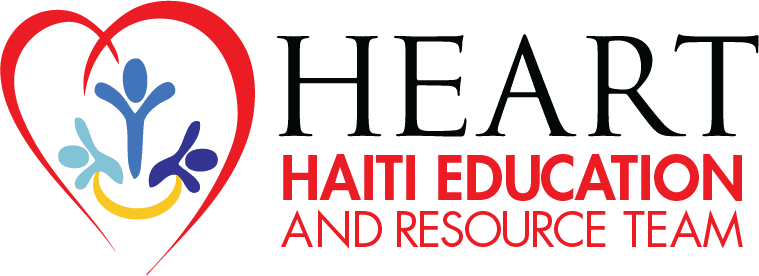Dr. Fisher’s Project 2017
Creating Stronger, More Resilient Communities in Haiti for The Children of Today and Tomorrow
A Program for Community Growth Developed by Dr. Erik Fisher with the Haiti Education and Resource Team www.HEARTinHaiti.org
The strength of a community is based on the strengths of its connections, and without trust, you cannot build a sustainable community. The question becomes, “How can we build strong communities in an environment that is often undermined by fear and mistrust?”
Haiti is country of opportunity, where people are thirsty to learn, grow and build stronger connections, and Dr. Erik Fisher’s ultimate goal is to help advance communities throughout Haiti, continuing his work in the community of Sibert. No matter what has come their way in the form of earthquakes, hurricanes and political upheaval, Haitians have shown their resilience and the ability to rebound from adversity.
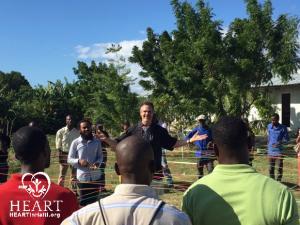 For the past three years Dr. E… has provided and developed a workshop series in conjunction with The HEART School in Haiti (locally known as École mixte de Sibert). Each year, the program has grown and evolved. Dr. E… has always focused on children and helping to improve the lives of children and families. In his more than two decades of experience, he has realized that the best way to improve the lives of children is to is to help the adults in the community to realize the issues that are contributing to the challenges they face in their communities and how this trickles down. He sees this as a multi-faceted approach.
For the past three years Dr. E… has provided and developed a workshop series in conjunction with The HEART School in Haiti (locally known as École mixte de Sibert). Each year, the program has grown and evolved. Dr. E… has always focused on children and helping to improve the lives of children and families. In his more than two decades of experience, he has realized that the best way to improve the lives of children is to is to help the adults in the community to realize the issues that are contributing to the challenges they face in their communities and how this trickles down. He sees this as a multi-faceted approach.
Background
Haiti has a storied culture, and Haitians have historically met many of the challenges that they have faced. However, like any country, Haiti has its culture, and depending on historical factors and how history influences the development of culture, sometimes these factors can limit people’s ability to see how they can sustain success. There are many who follow generational patterns of learned helplessness and may not see ways to grow beyond their past to a brighter future. Perspectives on personal power and the ways that we all view emotion can be like handcuffs that limit our growth and the evolution of communities. As people are given other ways to see themselves and the world, it opens up possibility and opportunity. Dr. Fisher doesn’t see what he teaches as anything new, but the manner in which it is presented awakens what we all know deep inside.
What became clear to Dr. E… as he engaged with the people of Haiti, is that 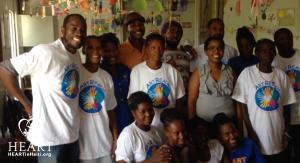 there are a number of young adults who want to make a meaningful difference in their communities and their nation, but they lack the necessary education, guidance and direction to know how to do it, individually, or as a collective. They also were not aware of how to involve other communities to gain critical mass to progress together.
there are a number of young adults who want to make a meaningful difference in their communities and their nation, but they lack the necessary education, guidance and direction to know how to do it, individually, or as a collective. They also were not aware of how to involve other communities to gain critical mass to progress together.
Many of these young adults have innate leadership skills that can foster growth. If their own skills are not fostered and channeled in a healthy way, those skills may be misused, abused, or stifled. Furthermore, many communities may lack leaders that can effect positive change, and as a result, generational patterns of stagnancy may persist. The workshops are intended to provide a basis for young adults to begin to find their strengths, as well as the strengths of their community, with a goal that the model spreads to nearby communities and the mentoring and learning continues organically.
Workshop Overviews
The program involves a combination of workshops that serve multiple purposes. The following explains the workshops and the process behind their development.
Workshop Series Objectives:
- Help participants understand their personal dynamics, as well as the dynamics of communities.
- Provide a framework for understanding how emotions and perceptions of power influence communities in both positive and destructive ways.
- Educate on cultural beliefs that may be limiting their personal community growth.
- Help them to develop a list of community resources that they can call on to build trust, interdependency and group and individual empowerment.
- Help participants to begin to understand how to effect change on multiple fronts in their community, region, and potentially, their nation.
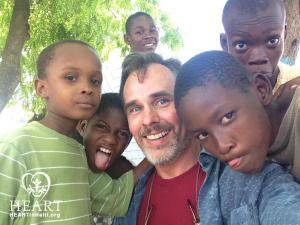
- Create intra- and inter-community mentorship programs that propagate around the country to aid in cooperative skills and cultural development.
- Create healthier environment for business growth and domestic and foreign investment.
- Aid in community-wide preparedness for positive change, as well as disasters, to decrease dependence on other outside sources.
- Create healthier environments for children to grow up in and cultivate opportunities for a better future.
- Provide an introductory education on business development and how to operate and build a successful business
Community-Building Workshop
This workshop began as a discussion between Dr. Fisher and people in the community who had questions about helping their community that then grew into the current form of the Community-Building Workshop. As needs have been observed, additional information has been added each successive year. What is now a 2-day “introductory” workshop is focused on educating community leaders, business owners, and young adults on:
- Issues with the ways we look at power
- How emotions play into power
- How power influences our views of the world
- How power perspectives affect community development
- Cultural and historical issues that affect community
- How to build community programs and mobilize resources
Year three added a discussion of:
- Disaster Preparedness and developing a community plan
- Building an environment that is conducive to business and development
- How to develop a community marketing plan
This year we are adding a day on:
- The economics of business
- Attracting the potential for foreign investment in community
As traction has been built in the past three years, we have seen participants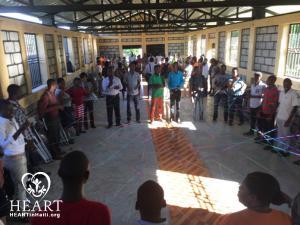 travel from as far as two hours away from some of the mountain communities. In a country where transportation is challenging, at best, this is significant. We have also had ministers and local politicians attend. While we have had our home base at The HEART School in Haiti, the intention is to move to other locations so that we can continue to attract new participants in different communities. A barrier to location, as we see it, is finding a location in each community that can fit everyone.
travel from as far as two hours away from some of the mountain communities. In a country where transportation is challenging, at best, this is significant. We have also had ministers and local politicians attend. While we have had our home base at The HEART School in Haiti, the intention is to move to other locations so that we can continue to attract new participants in different communities. A barrier to location, as we see it, is finding a location in each community that can fit everyone.
There is also a purpose for including both young adults and community leaders in the same workshop. That reason is to increase the chance of mutual understanding and intercommunication and to help both groups learn from each other. As young adults, who will become the possible business owners and leaders of tomorrow, are able to learn from the successes and mistakes of those senior to them, they will hopefully see a clearer path to success for all.
Community Mentoring Workshop
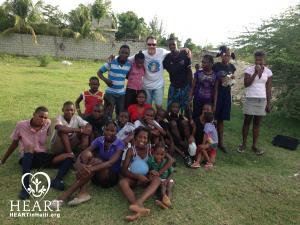 The Secondary Workshop is an advanced one day-long workshop for people who have participated in previous workshop(s) and have learned the basics of what is taught in the primary workshop. Previous attendees are able to attend one or both workshops more than once, because the intent is to learn mastery so that they can become mentors within their own community and mentors to those in nearby communities.
The Secondary Workshop is an advanced one day-long workshop for people who have participated in previous workshop(s) and have learned the basics of what is taught in the primary workshop. Previous attendees are able to attend one or both workshops more than once, because the intent is to learn mastery so that they can become mentors within their own community and mentors to those in nearby communities.
The Agenda consists of the following:
- A review of previous learning objectives in the discussion of
- the models of power
- how emotions play into power
- how that knowledge was internalized over the past year
- Participants share their community activities within their communities
- Steps to implementation
- Participation
- Successes
- Failures
- Discuss Mentorship Models and Engagement for young adults and current community leaders
- Follow up on Disaster Preparedness Plan progress
- Assessment of Business Development in the Communities
As the scholars become mentors, participants are able to internalize the lessons that are offered. This is a “Train the Trainer” model, and we plan on those who learn mastery to teach the program in other communities. As the program is taught in nearby communities, the intention is that those who have learned the program from one community will help mentor those in nearby communities. The intention of the advanced workshop is to prepare participants to be able to mentor others.
This All-Day Mentoring workshop is for individuals who participated in previous workshops. This will provide a review of what was learned in the previous workshop and will also focus on providing skills for mentoring, leadership and community building. An inherent goal of the program is that a group from the previous year will then assist with mentoring the new participants by assisting in the Community Building Workshop and then following up with those attendees in groups or with individuals, after the completion. As attendees continue to stay connected through the community groups and/or through individual mentorship models, the goal is to build more connected intra- and inter-community bonds.
Business Development Workshop
Communities in Haiti can offer many opportunities for people to develop small businesses that can become successful. Beyond the success of these businesses, we can help build a stronger local economy to attract larger businesses and possible foreign investment. We believe that by providing information on the elements of building a business, we can help communities grow stronger, and through providing a model of mentoring, existing business owners will assist those starting businesses to help them as they progress. The key of this will be for everyone to see the wisdom in helping others in their community and nearby communities to help them all succeed. These tenets are taught in the Community Building Workshops
This will be an interactive one-day workshop that will be taught by Ken Snyder, who has developed a number of successful businesses in the United States, with the assistance of Dr. Fisher and Shad St. Louis. It will involve instruction, and group activities.
The Agenda will consist of the following:
- Education on developing an idea of a business and evaluation of skill sets
- Developing a business plan
- Concept of Profit and Loss and Balance Sheets
- Marketing, Advertising, and the Value of Relationships
- Employees & Management
- Methods of income: Cash, Credit, Barter
- Expansion and Growth
Conclusion
As you can see, we accomplish a great deal in a short amount of time, and we see this as a continuation of what was started a few seasons ago. We hope you will join us on this mission through your support. One day soon, we hope to also be able to continue to effect change in other regions of the world, including the U.S. It is important to see that although the world is a big place, our community is our planet, and we all live here together. If we can build stronger communities and help people to see how to do that, proving the strength of this model, think of how our world can change for the better.
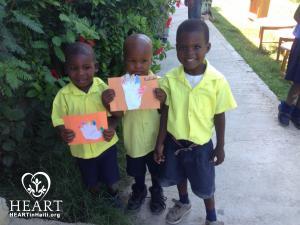 In his time in Haiti, Dr. E… has come to thoroughly enjoy the people and the culture. He sees so much opportunity, and believes that with the right direction and instruction, we can continue to help build a strong sense of community that can grow for generations. Those at the HEART School have been educating the children of Sibert for years and are enhancing the foundation of the community. In working in cooperation with Dr. E… on this program, they found that with only a few days of well-planned instruction and direction with the older generations, change has been affected that seems to be continuing to this day. After three years, this relatively, is still just a start. What we believe is that if we can help those who guide children and provide direction to them to change their beliefs and environment for the better, we can make a better world for the children in Haiti for today and tomorrow.
In his time in Haiti, Dr. E… has come to thoroughly enjoy the people and the culture. He sees so much opportunity, and believes that with the right direction and instruction, we can continue to help build a strong sense of community that can grow for generations. Those at the HEART School have been educating the children of Sibert for years and are enhancing the foundation of the community. In working in cooperation with Dr. E… on this program, they found that with only a few days of well-planned instruction and direction with the older generations, change has been affected that seems to be continuing to this day. After three years, this relatively, is still just a start. What we believe is that if we can help those who guide children and provide direction to them to change their beliefs and environment for the better, we can make a better world for the children in Haiti for today and tomorrow.
Your Chance to Help in Haiti
Program Expenses
The following are a list of expenses for the program with estimated costs.
- Translator for a Day: The Cost of a Translator for a Day is $80. We will have 2 Translators for the work that we will be doing there for the four days. The total cost for translators will be $640.
- Lunches/Food for Participants: A meal per day for kids and adults can be a luxury in Haiti. I think we all know that diet can be a big issue when it comes to learning. We want to make sure that everyone who comes to any workshop gets fed so that they can focus better on what we are hoping to feed their heart and soul, rather than feel hunger pains. The cost for food/drinks will be $800 for the 2-day workshop and $300 for the 1-day workshop. This includes drinks, snacks and lunch, for more than 200 participants **Any additional remaining food and funds after the workshops will be donated back to the school to help provide healthy meals for the students and staff. **
- Transportation: While the amount cannot be known in advance, it is estimated that it could be as much as $300, because I will be hoping to build bridges for future trips and may have to travel to make those connections, as well as other transportation for materials.
- Electricity is by generator at The HEART School, and this will be used during the workshops. The cost to run the generator for the time I will be there will be roughly $300.
- Additional Presenter Compensation: In Haiti, I will not be the only presenter for these workshops. Ken Snyder will be speaking on Business Development; Shad St. Louis, who is the Founder of the School will be speaking on Cultural Issues and other content; as well as other staff, who will be providing their experience and expertise during the workshops. I would like the speakers from Haiti to be reimbursed for their valuable time. Mr. Snyder will be providing his time at no cost. There are also other administrative costs involved in this endeavor that I would like to make sure get covered. We are estimating $500 to cover these expenses.
- Lodging: While we stay at the Director’s home in Croix des Bouquets, I provide him with a stipend of $80 per night. This takes care of my stay and also helps him to continue to support the kids that he cares for in his home.
- Community Development Endowment: One of the goals of the Community Mentoring Workshops is to develop a Community Endowment that will be supervised by The HEART School. This is a fund that young adults, who want to develop and implement community activities, can write “grant proposals” to request funds for programs and/or materials for the project. Decisions will then be made about how to distribute funds in an appropriate manner. These funds could be used for community development events, education, providing community resources, possibly recreational equipment and/or supplies. Only those who have participated in the workshop will be able to apply for funds. Funds will be held in a separate account of The HEART School.
Please help by clicking on the button below.
Indirectly, what we are hoping to teach the young adults is how to develop a plan for a program, develop a needs assessment and budget, and then apply for funds and ultimately implement the program. They need funds to do this, and hopefully by going through this exercise at a micro level, it will help educate them in being able to develop a business a business plan and learn how to pursue funding, operate within a budget, and succeed to make a dream a reality. This fund has no amount attached to it, but, as you can see will be priceless. This fund goes beyond our visit, and hopefully can continue to grow, as it helps these communities to grow.
Key Speaker Bios
Dr. Erik Fisher, aka, Dr. E…
Leading Emotional Dynamics expert, Erik Fisher, Ph.D., aka Dr. E…, has been changing the lives of children, teens and adults for two decades. As a psychologist, media consultant and author, his unique and creative approach to his work has earned him the respect and accolades of his clientele, his colleagues, and the media. As a resource to the media, he has appeared numerous times on networks such as CNN, HLN, CNN-I, FOX, and NBC, being a part of events that have changed the world, and providing his quick–hitting insights and advice on everything from International traumas to cultural issues, the state of the American family, and bullying. Whether he is discussing the purpose of emotion, the use of dichotomies of Good-Bad, Right Wrong, Strong-Weak, or Win-Lose in our culture, or addressing common roles in life that are played, such as Victim, Persecutor, Rescuer or Instigator, many events in life are able to be understood by most, and giving the power of knowledge to the masses is his goal. From interpersonal and family struggles and bullying to politics, war and terrorism, he is able to offer insight in a manner in which most are able to understand.
On the radio, he has been providing interviews for more than 15 years on stations across North America and has been interviewed for countless print articles in magazines, from Parents to Cosmopolitan, and newspapers across the country from The Atlanta Constitution to the Chicago Tribune to the L.A. Times. Dr. E… has two published books, The Art of Empowered Parenting: The Manual You Wish Your Kids Came With and The Art of Managing Everyday Conflict: Understanding Emotions and Power Struggles and proposals for three book concepts and animated series.
Play has always been an integral part of Dr. E…’s work with kids and adults. It is through the process of play that he has reached many of those who seemed to be out of reach and been the subject of a CNN segment on his unique style of work. In the past year, Dr. E… has had the honor of becoming a Genius Expert for The Genius of Play, a Toy Association initiative that is focused on teaching the benefits of play, learning valuable life skills and providing helpful tips and pointers for parents to engage more with their kids in their play. He and his daughter, Grace, have had the pleasure of providing videos on the various benefits of play, and he is engaging people across the U.S. with his insights on the power of play.
In regards to his work with non-profits, he has been on the Board and was CEO of the Board of Directors for Special Needs Schools of Gwinnett, B.O.D. for the Innovative Health Foundation, Secretary for the B.O.D. of The ArtReach Foundation, Medical Advisory Board Member for the Worldwide Syringomyelia and Chiari Task Force, and Advisory Board Member for The HEART School in Haiti. For the past three years, Dr. E… has traveled to Haiti to deliver Community Building Workshops to community leaders and young adults to educate them on how to more durable community relationships for today’s and tomorrow’s generations. More information on Dr. E… can be found at www.DrEPresents.com
Schadrac St. Louis, Executive Director
Schadrac, (Shad) St. Louis was born in the town of Sibert, Haiti, quite close to the current location of the HEART school. His father worked tirelessly throughout Shad’s childhood in the United States to earn enough money to move his wife and children to New York because they feared for their lives during the political turmoil during the 1990’s. His father was able to get the whole family into the United States, only to die shortly thereafter in a car accident, with Shad in the passenger seat. The loss if his father, and the understanding of the depth of love and commitment that his parents had for him left Shad with a strong resolve to do well in school, go to college, and ultimately return to Haiti to create sustainable change through education.
Shad studied education and is continues to work in the State of New York in the public school system, while he also fulfills the role to the school as Executive Director. Having trained a trustworthy, dependable and hard-working staff at the school has enabled him to continue to work full-time in the U.S., while running a successful school. He continues to make numerous trips to Haiti every year to work with the staff, interact with the community and build new programs, host speakers and guests, and participate in the various activities that operating a school entails. Shad truly is one of those individuals that is dedicated to making a difference, and he does it with such humility.
HEART was founded after the January 2010 Earthquake that devastated Haiti. Shad St. Louis, with others, made a fact-finding trip to his hometown in Haiti and asked what it was the community wanted. They wanted a school for their children. With a lot of hard work by Shad, Carina Blon, and many dedicated volunteers, a school opened in October of the same year with 45 students and 5 teachers.
Ken Snyder
A degree from The Ohio State University Fisher School of Business in Real Estate and Urban Analysis solidified the foundation of my entrepreneurial spirit. My professional career has always been focused on the small enterprise and entrepreneurial oriented sector. I started working for a family landscape business in my teens growing from pushing a lawn mower to eventually running crews on large accounts. Over time the company grew into a full service construction company which has built 100’s of homes.
Upon graduation from college I began a career in the commercial real estate appraisal field that gave me a view of the commercial real estate world that I continue to function in today. My wife and I moved to Tampa in 1994 from Cleveland and I settled into a career in the commercial lending industry that was anchored by my appraisal training. I spent 10 years underwriting and lending on commercial oriented projects mainly in the southeastern United States which continued to foster my entrepreneurial view of the world as the majority of my clients were self-made self-starter entrepreneurs.
In 2000 I partnered up with an entrepreneurial client who was involved in a diverse array of business interests from real estate investments, to Dominos Pizza franchises, a trucking company, employee leasing, temporary staffing, and a dirt race track to name a few. My roles have varied with each company but the common thread is the entrepreneur track/path each entity was on to exist and grow in its industry. Currently my days are spent in a leadership and support role of the teams in place who run these businesses on a day to day basis as I continue to identify, create and develop new business opportunities.
The HEART School
While some students are little and some are becoming young men and women, all of the students of Ecole Mixte de Sibert in Haiti share a school that was created for them and those who come after them.
They share many life-changing bonds: education, learning respect, realizing critical thinking, accepting responsibility, understanding self-sustainability, giving, sharing and service. Many of these lessons are learned over the nutritious breakfasts and lunches provided each school day. Most important, they care for their school and community. Education to the students of Ecole Mixte de Sibert is much more than academics.
The elementary school was founded in 2010 in an earthquake-damaged house that was a family home of the Director/Headmaster Schadrac Saint Louis, with the mission being to educate the whole child, empowering them to reach their full potential. The school registered 42 students and hired five teachers from the community. Although this was not the ideal atmosphere for teaching, teaching happened and children learned. Serendipity played its role and added some important players to the team.
Jonathan Nash Glynn, in his own private plane, had been delivering needed supplies to the earthquake-ravaged area and became interested in the school that the young Haitian was developing. The two men became partners and began plans to move to another more promising location within a few miles. Two acres of land were chosen for a true campus to create an atmosphere so the students and faculty would grow and benefit.
Serendipity continued. Having heard about the school, Richard John Livingstone Martin, a retired professor from Georgia Tech, appeared at Shad’s gate offering to construct a school building. He proposed to do that with retired shipping containers, because he had been working on this process with his classes when he was on the Georgia Tech faculty. Shad was excited about the prospect of having real classrooms but wondered how this would all happen.
Professor Martin returned to Atlanta and spoke with his wife about how to fund his plan. She suggested meeting with the president of her Midtown Atlanta Rotary Club and that was the launching of an effort to reach out to financial supporters that grew from Atlanta through the USA and over into Europe. Soon a 501(c)(3) nonprofit organization called HEART (Haiti Education and Resource Team) was established for support. A small group of people committed to education, helping children affected by the traumatizing earthquake, and Haiti’s future gladly accepted a myriad of challenging responsibilities.
The initial classrooms and cafeteria building was constructed from four shipping containers on the newly acquired 2-acre property. More classrooms were fabricated as the number of grades increased. In addition, an all-purpose building now rounds out the campus. This great addition to the campus, a gift from the Rose Foundation, provides space for community as well as the school activities. In addition to instruction, the children receive two school meals each day, cooked and served in the cafeteria, made with ingredients from local markets and from the school garden tended by students.
Fast forward to 2017 and 138 students and 23 staff now make up the HEART school in Haiti. It is now a school situated on a 2-acre piece of land with the original shipping container building, additional classrooms, and a community building. There is a school garden that students care for, and the food harvested helps make up the 2 meals the children receive every school day. A bio-digestion system creates a clean fuel to cook with and a byproduct of organic fertilizer for the garden. Sustainability is an important learning piece in the school curriculum, because they are not just providing education in the three R’s, they are providing skills for life that can help Haiti to thrive.
This year the school is expanding to include 7th grade, the first year of high school in Haiti. Shad continues to lead a very capable team.
